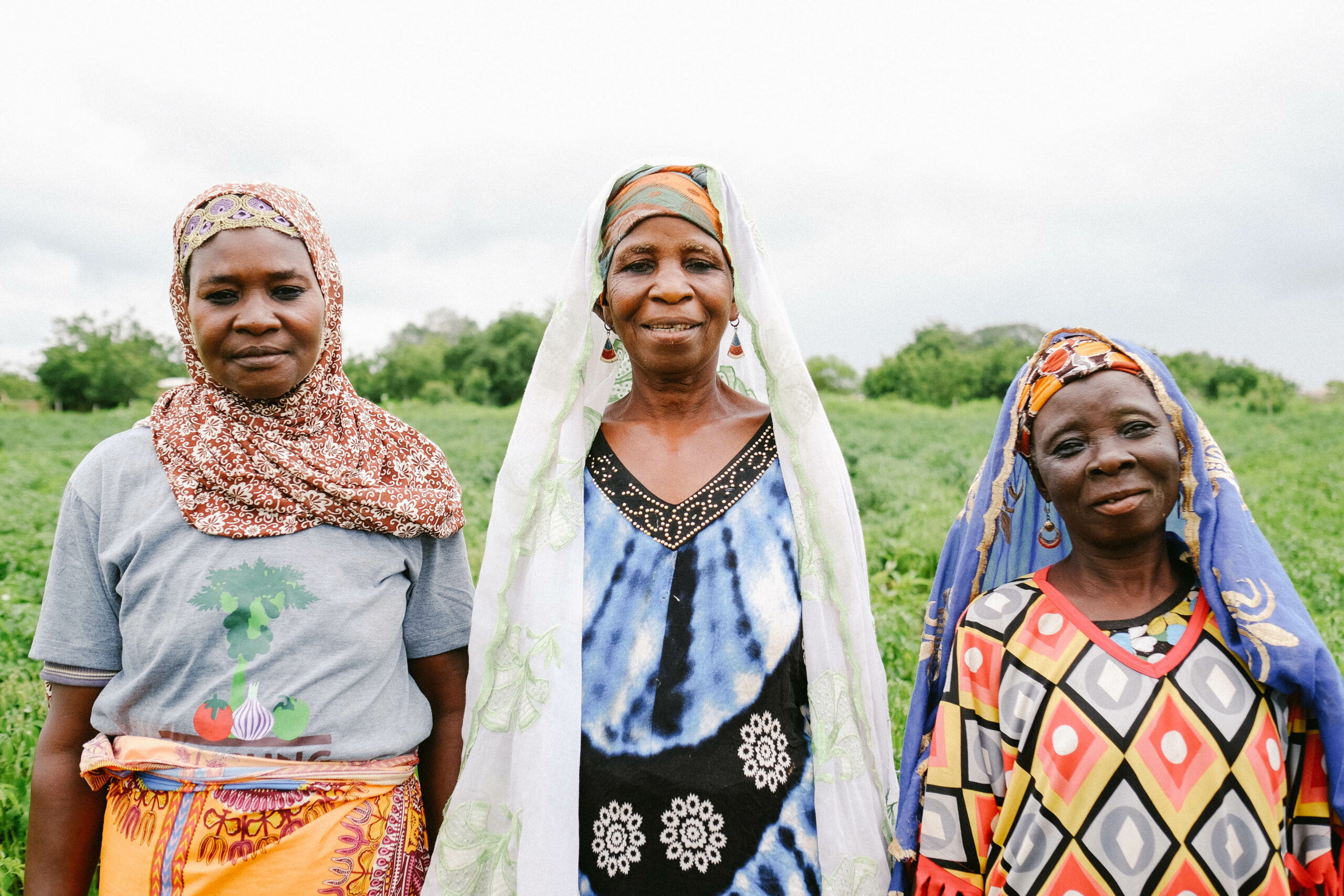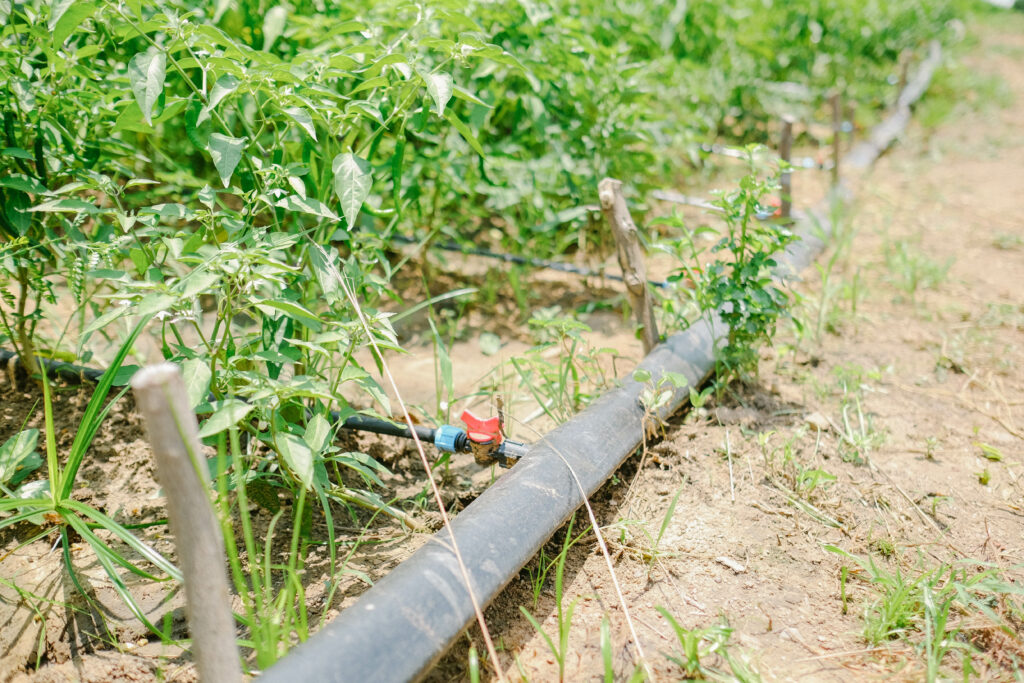New Solutions for Small Farmers

“At first, I had my doubts, but now that we see the harvest, we are excited!”
Fati Adam, a grandmother and small farmer in the community of Sunsong, in Ghana’s Northern Region, is describing her experience growing chili peppers through a new iDE venture. We are standing in a 10-acre field, full of knee-high chili plants laden with red and green fingerlike peppers. The sky is overcast and threatens rain. It is hot and humid, but not oppressively so; a gentle breeze ruffles the leaves and the light scarf that Ms. Adam has draped over her head.
Ms. Adam is one of 21 farmers (10 women and 11 men) growing chilis at the Sunsong Farm. She normally grows corn, soy beans and yam, but prices are low and one dry stretch during the growing season can mean suffering for the whole family. At the Sunsong Farm, each row of chilis stands next to a line of drip irrigation tubing. The farm is next to a sizeable reservoir, but without irrigation equipment, most farmers have not benefited from this resource. The drip irrigation saves time and labour as it delivers the water directly to each plant. Most importantly, the irrigation system allows farmers to grow chilies during the dry season and to survive dry spells during the rainy season.
Suraya Ibrahim, the iDE farm manager, is responsible for supporting the 21 farmers to grow chilis, and coordinating sales to commercial buyers. Like many women, she is managing more than just the farm, carrying her young baby on her back as she greets farmers and stops to discuss concerns and answer questions. Donor support has helped to get the farm off the ground, particularly supporting staff like Suraya to organize farmers and manage all the challenges of a new operation. However, the model is for each farm to quickly become self-sufficient. Profits from the chili sales are shared by farmers and the farm, helping to pay for the farm manager, inputs, transport and other operating costs.
Farmers seem happy with the arrangement, as long as it is transparent and fair. Ms. Adam says that, like most farmers, she struggles to get enough cash together to pay for seedlings, fertilizer and other inputs. When she heard that the farm would provide these things up front, and that she would pay the costs at harvest, she was delighted. Traditional microfinance institutions often shy away from agricultural production, due to the risks. By providing irrigation and technical support, and forming a group of farmers who learn from each other, Sunsong has more control over the production process and so can cover the input costs up front, confident that profit-sharing from the harvest will pay the bills.
When I ask Ms. Adam what she plans to do with the earnings from her first season of chili production, she doesn’t hesitate. “I will pay the school fees for my grandchildren,” she says confidently.
Your support makes it possible for iDE to develop new ways for small farmers in rural Ghana to be successful and self-sufficient, and to accelerate the development of more farms like Sunsong that bring income, dignity and empowerment to farmers like Fati Adam.

Arishetu Wahabu says that until she saw the drip irrigation system at Sunsong Farm, she had no idea that it was even possible to grow peppers in the dry season.
“We had no idea about this technology,” she says, “but when I heard about it, I thought, ‘this is something new, so why not try?’” Arishetu is one of 21 people growing chili peppers on this 10-hectare farm organized by iDE to connect small farmers with commercial buyers.
Over the past three months that she has been farming at Sunsong, Arishetu says she has learned a lot. “The farm manager provides training and advice,” she notes, “I had never used fertilizer for pepe (hot peppers) before.” Traditionally, farmers would simply broadcast pepe seeds on a tilled field.
iDE has helped the farmers to organize a small nursery and transplant seedlings into rows of hilled soil for better drainage and weed control. It is more work, but farmers are seeing the benefit in their harvest.
On the first harvest day, Arishetu collected 105kg of peppers from her plot, enough to earn about $20. However, as she looks at the chili-laden plants around her, she is already anticipating the next harvest day in a couple of weeks’ time, when she expects a much larger haul.
Thanks to your support, iDE is able to develop ventures like the Sunsong farm, which translate farmers’ efforts into productivity and profit, giving them, their families and their community new opportunities for improved livelihoods and self-reliance.
